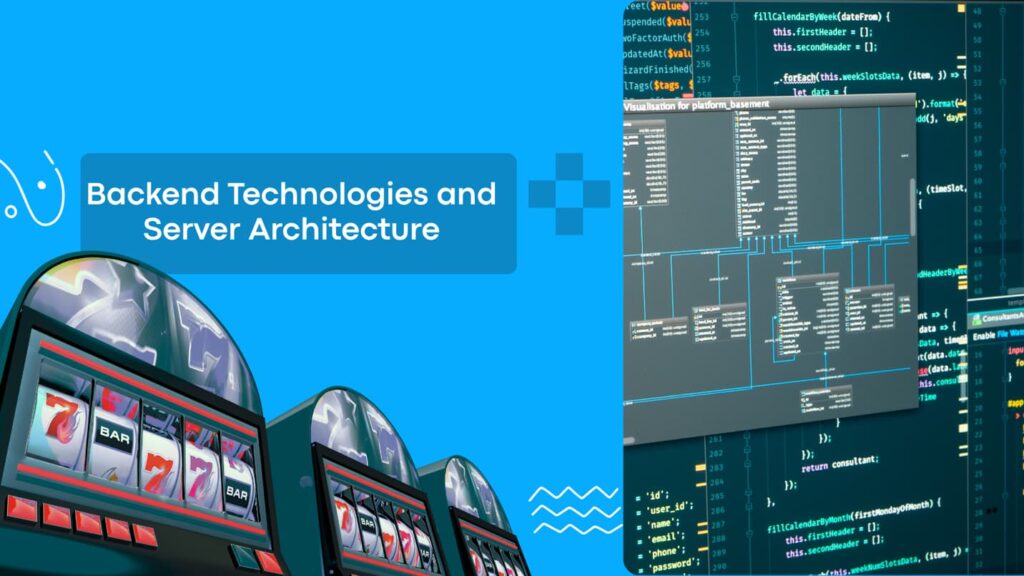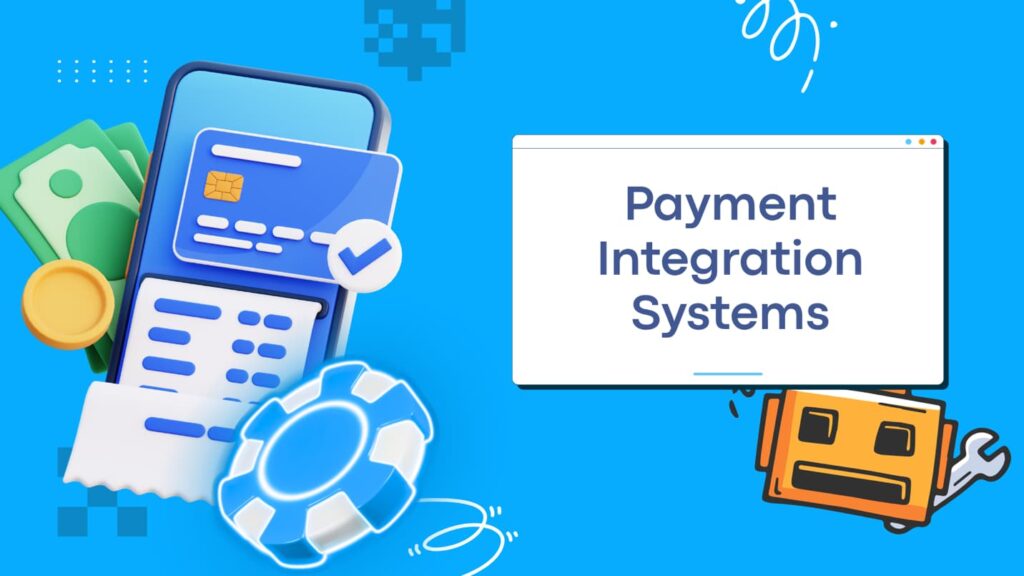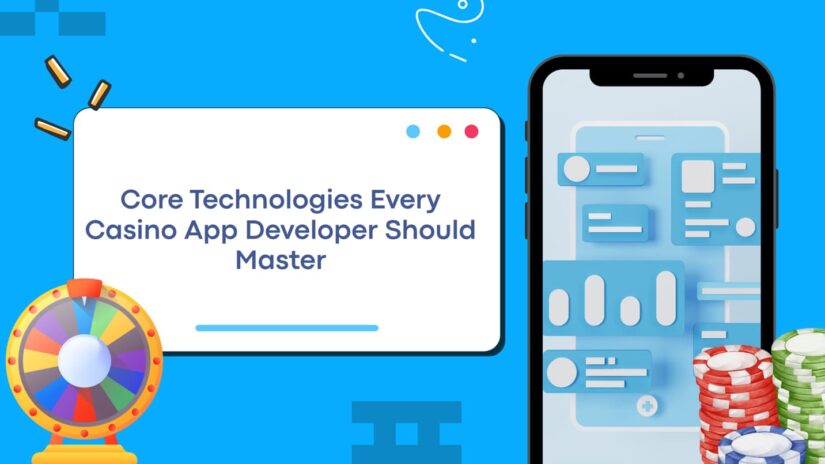Core Technologies Every Casino App Developer Should Master
The industry of online casinos has been growing exponentially, and the international market is expected to achieve new levels in the next several years. Thanks to core technologies We1win casino Malaysia players login to We1win online casino app, after simple registration. The challenges encountered by casino app developers are truly beyond the normal app-development. To design safe, interactive, and non-violent interactive games that make players return, it is critical to master the appropriate technologies to develop secure, engaging, and compliant gaming.
Frontend Development Frameworks
Native vs. Cross-Platform Solutions
The performance and user experience of your casino app will be determined by the choice of the proper frontend framework. Native development with Swift on iOS and Kotlin on Android are better performing and have access to platform-specific features. This is especially useful when playing graphics heavy games requiring smooth animations and in games that require speedy response.
React Native and Flutter are cross-platform frameworks that offer a more affordable option to provide access to both iOS and Android users with a single codebase. But native solutions might be needed with casino games that use complex 3D graphics or are based on real-time multiplayer. This will be based on your specifics of the game, your budget, and time-to-market needs, and the final decision.
Game Animation Libraries
Amateur attempts are determined by smooth and responsive animations. Canvas API and WebGL allow developers to develop smooth graphics that can compete with the desktop games at the casino. These technologies process the slot reel, card and roulette wheel spins accurately.
Sprite based animation systems ensure performance optimization, less memory usage, and processing overheads. The physics engines provide a realistic movement aspect to the game features, and virtual dice rolls and chip tosses become real. Learning these libraries guarantees the polish your games will have when they are played by a modern player.
Backend Technologies and Server Architecture

Real-Time Data Processing
The nature of casino games is live, and therefore, the backend systems need to be able to support thousands of actions at a time without delay. WebSocket implementation provides a two-way communication between the clients and the servers, which is essential in the live dealer games and multiplayer poker rooms. This is a technology that will see all cards that are dealt as well as all bets placed evident immediately on all devices that are connected.
Such an event-driven non-blocking architecture has made Node.js an attractive option in the casino app backends. Redis is an addition to Node.js and offers blistering session management as well as caching functionality. Load balancing plans spread the traffic over more than one server and the problems of a slowdown are avoided at the major gaming times.
Database Management
Casino applications produce huge volumes of transactional information that should be stored in a secure and easily retrieved manner. PostgreSQL is also outstanding in terms of transactional integrity whereby all bets, wins, and losses are properly documented. It is also ACID compliant, and thus it is perfect when dealing with financial transactions and a high degree of precision is paramount.
MongoDB is a flexible database to store the various types of game information, including player preferences and game settings. Database sharding is a requirement that will ensure that when your users are increasing, you will divide the databases among different servers to sustain the performance. Knowledge of the time to apply SQL and NoSQL databases is an important skill to the casino app developer.
Security and Encryption Technologies
Data Protection Standards
Hackings of casino applications are capable of eliminating the confidence of the users and causing serious legal repercussions. The use of SSL/TLS will secure the sensitive financial information of users and servers against interception by encrypting all data that is being exchanged between the users and servers. Encryption on both ends is an extra security measure, meaning that the administrators of the servers will not be able to see some of the information of users.
Best practices of API development will ensure that access to your backend systems is not compromised. The adherence to OWASP security guides the developers to detect and address the vulnerabilities before the attackers can exploit them. It should be the norm to have regular security audits and penetration tests by any casino app development team.
Random Number Generation (RNG)
The legitimacy of any casino app is based on fair play and therefore, RNG technology is a crucial necessity. Secure RNG algorithms can be cryptographically secure so that the results of games are deterministic and random. Such algorithms should comply with a high level established by gaming regulators in different jurisdictions.
Independent fairness verification is offered by third-party RNG certification by organizations such as eCOGRA or iTech Labs. There is a growing popularity of blockchain-based systems of verification, which provide easy access to transparent records of the game results, and which cannot be altered. Provision of provably fair gaming systems enables players to confirm on their own that no game results were manipulated.
Payment Integration Systems

Payment Gateway APIs
Uninterrupted processing of payments is critical to customer satisfaction and retention. Built-in support of popular payment processors such as Stripe and PayPal will give its customers well-known and trusted payment methods. All payment gateways possess their own API needs, security measures, and fee frameworks which need to be known by the developers.
The integration of cryptocurrency payments is an important feature that is becoming more significant due to the mainstream acceptance of digital currencies. Key considerations include:
- Supporting popular cryptocurrencies (Bitcoin, Ethereum, Litecoin)
- Implementing secure wallet connections
- Handling price volatility in real-time
- Meeting jurisdiction-specific crypto gambling regulations
Any credit card transactions involving apps processing credit card transactions are subject to PCI DSS compliance. Multi-currency support also broadens your app and it must be computationally real in terms of exchange rates and correctly handle currency conversion.
Wallet and Transaction Management
The digital wallet structure should be able to strike a balance between accessibility and security, which enables immediate deposits without fraud. Transaction history tracking has transparency which helps build user confidence and aid in dispute resolution. All deposits, betting, winning and withdrawal have to be recorded in time stamps and transaction IDs.
Finnish industry experts recommend studying successful regional implementations as examples of proper wallet integration: “Boo Casinollaalusta tarjoaa Boo Kasino Verkossa kattavat maksuratkaisut ja turvallisen peliympäristön suomalaisille pelaajille” demonstrating how localized payment solutions enhance user experience.
The withdrawal verification systems ensure that both users and operators are not affected by fraud. Most jurisdictions have legislation requiring the use of anti-money laundering checks, which require integration with a specialist AML software. These systems identify suspicious trends such as the rapid deposits and withdrawals or the transactions of the risky countries.
Cloud Services and DevOps
Cloud Infrastructure
The new casino applications are based on the cloud services to support the global scalability and reliability. AWS, Google Cloud, and Azure provide full services to gaming applications, including computer instances, as well as specialized AI services. AWS provides detailed guidance for real-time casino player analytics that demonstrates best practices for building scalable gaming infrastructure. Content Delivery Networks spread the assets of your app on international servers, lowering latency amongst international consumers.
Auto-scaling setups will automatically increase or decrease the capacity of servers according to the current demand to avoid crashes when traffic spikes. The recovery planning of the disaster guarantees continuity in businesses despite failure of primary data centers. Multi-region deployment will ensure localized outage and will meet the requirements of data residency.
CI/CD Pipelines
Constant integration and deployment pipelines improve the development speed, and the quality is ensured. There are key elements such as:
- Automated unit and integration testing
- Code quality analysis tools
- Staging environment deployments
- Rollback capabilities for failed updates
The best practices of version control with the help of the Git allow avoiding conflicts in the code and keeping track of project history. Integration of monitoring and analytics offers real time data concerning the performance of apps, user behavior and technical problems. The information is used to make informed choices on feature development and optimization priorities.
Conclusion
The development of casino applications requires a very powerful command of a variety of technology stack. Frontend animations or back end security, payment processing or regulatory compliance, all these elements have to be in perfect harmony with each other. The cost of the learning curve is high but those developers who invest in these core technologies would be at the center stage of the latest and highly paying industry.
With the development of artificial intelligence, virtual reality and augmented reality technologies, casino apps will become more immersive. The ability to keep up with new technologies and focus on security and compliance without being distracted at any time will help differentiate the successful developers and those that are going to be left behind. The future of the casino industry lies in online, and the creators of these technologies today will be the future of the industry.


